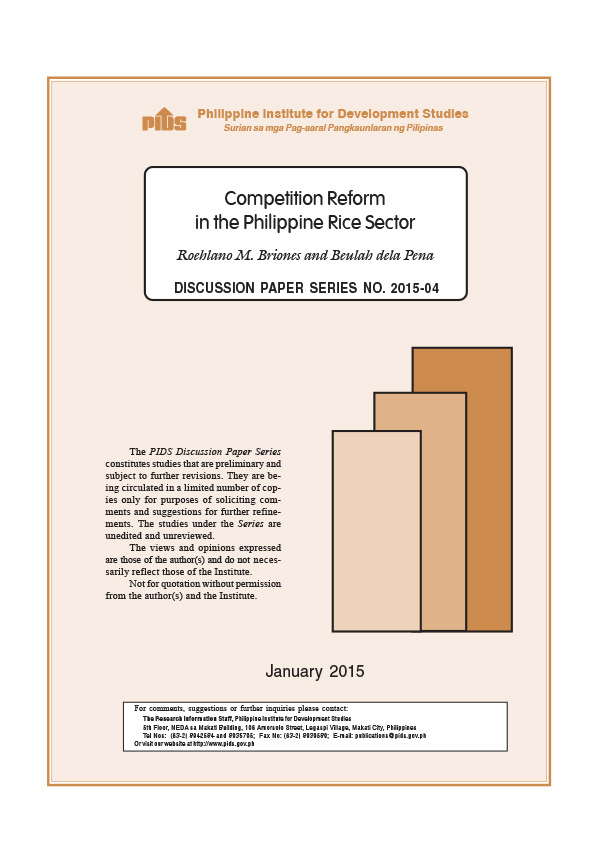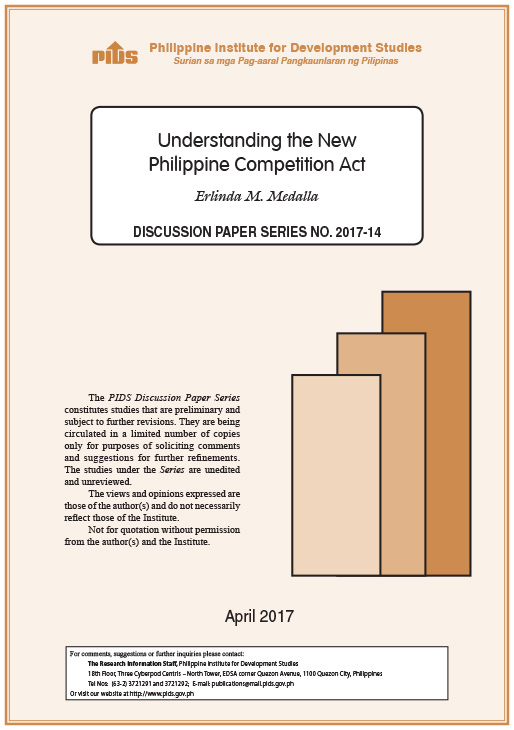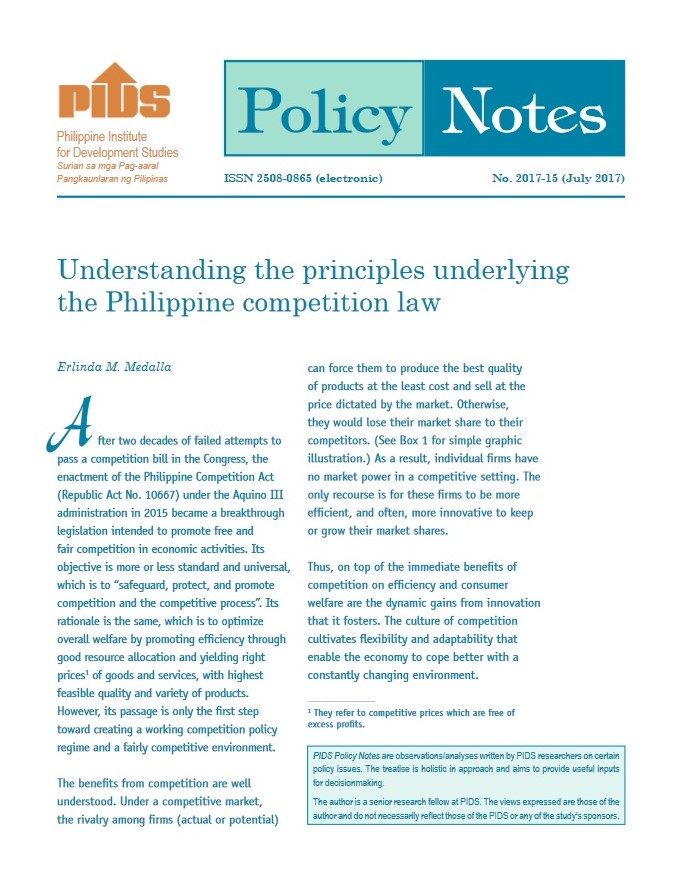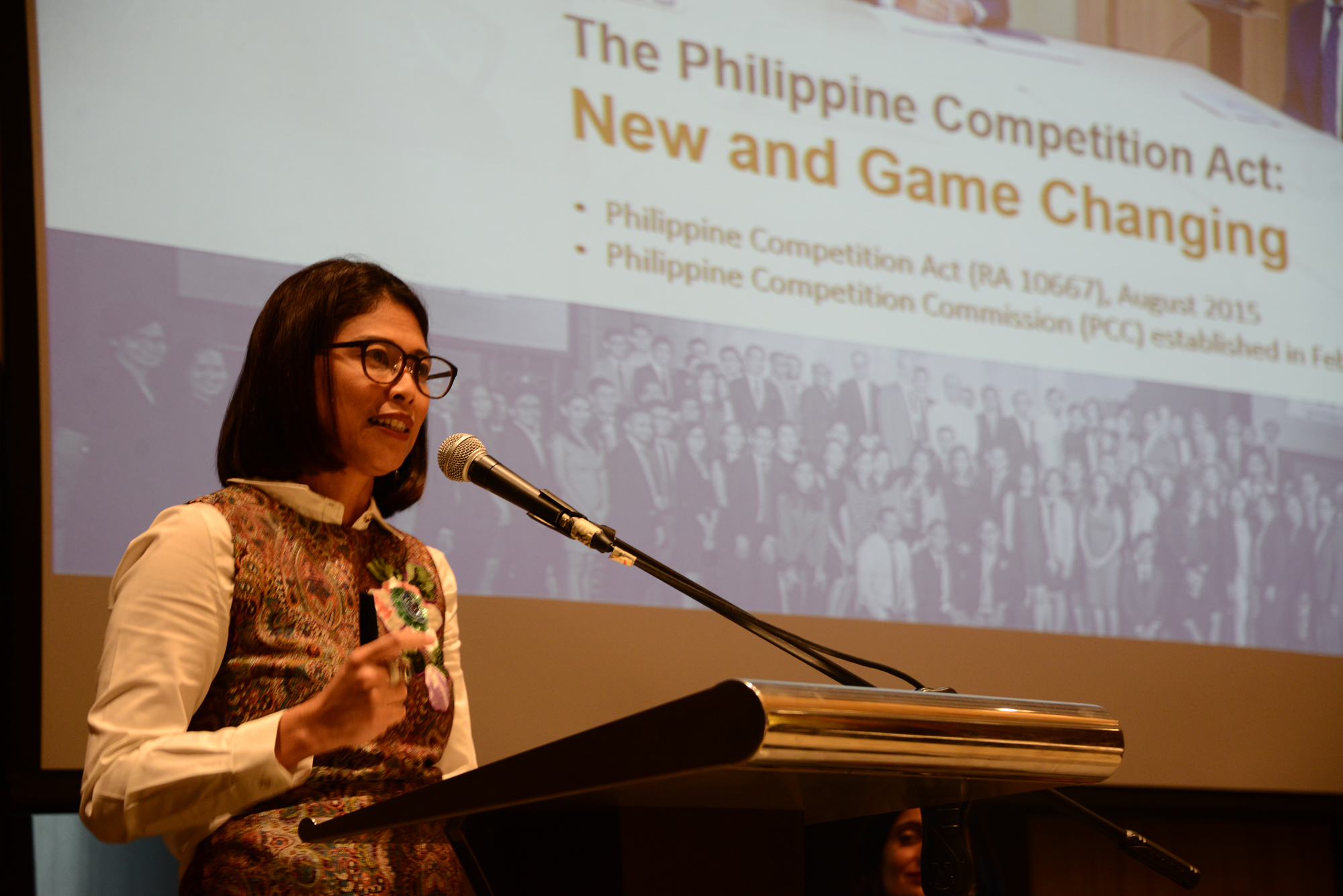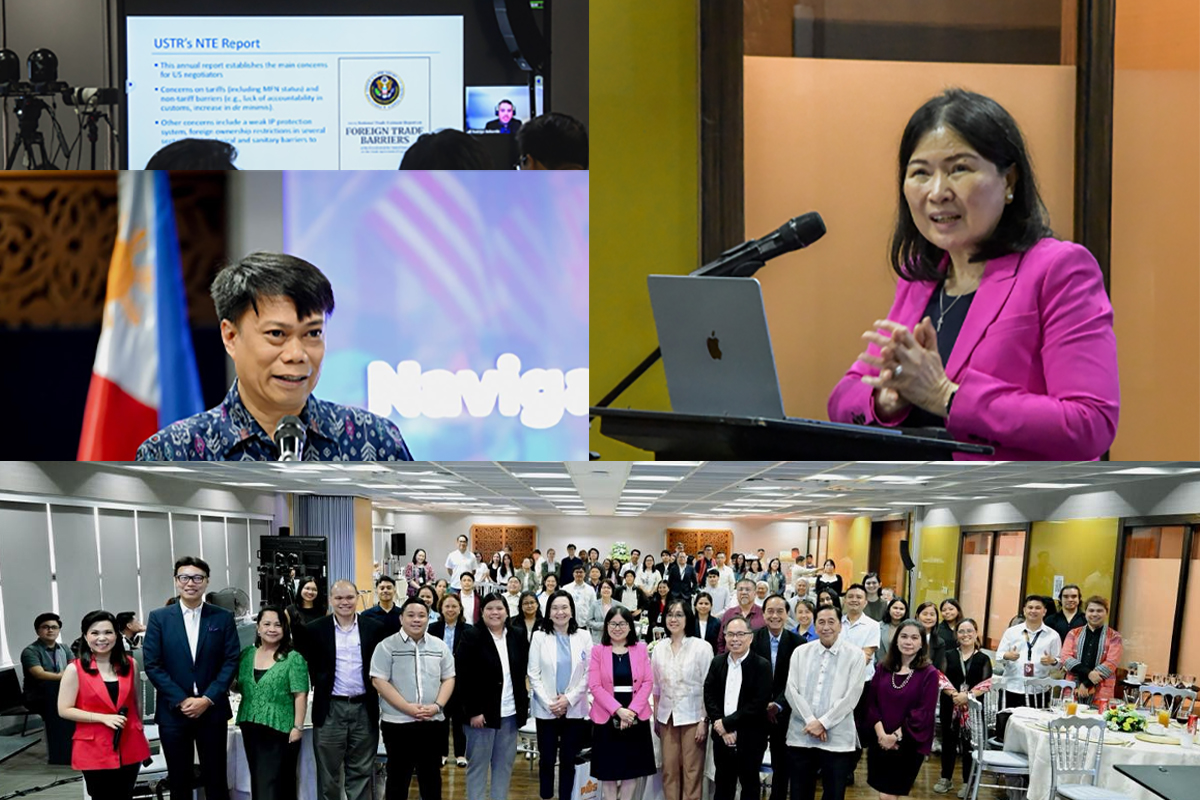Competition policy reforms should be in place to level the playing field and prevent powerful interest groups and individuals from controlling the market.
In a forum organized by state think tank Philippine Institute for Development Studies (PIDS) with the Consumer Unity and Trust Society (CUTS) International based in Jaipur, India, and the Action for Economic Reforms (AER), Department of Justice Assistant Secretary and Head of the Office for Competition Geronimo Sy confirmed the anti-competitive practices of powerful Filipino businessmen. Sy revealed that a Filipino-Chinese business tycoon once used his influence to restrict the 13th Philippine Congress in passing a competition bill.
Sy cited politicians owning generic drug firms and lobbying to have their generic drugs qualify for government bidding. A local trucking cartel also exists in the Philippines, he disclosed, wherein some ports only accept goods that go through the trucking cartel.
Nevertheless, the Philippines did a 10-point jump in the Global Competitiveness Index from 75th by the end of 2011 to 65th by the end of 2012. According to Sy, such an improvement of performance can be associated with the creation of the Office for Competition which is only in its second year. Still, he emphasized the importance of having an effective competition law and policy to strengthen the offices bulwark against prevailing issues that impede competition.
In the same forum, PIDS Vice-President and Senior Research Fellow Rafaelita Aldaba disclosed an exclusive dealing by a canned tuna giant company. The controversial company used its voluntary loyalty program to restrict San Marino corned tuna products in selected dealers and retailers. She related a common practice by dominant companies of buying out their competitors once they become strong. Aldaba also underscored the conflicting roles of the Philippine Ports Authority as regulator, developer, and operator of ports.
The seminar was part of the activities of the three-year project of PIDS, CUTS, and AER on Competition Reforms in Key Markets for Enhancing Social and Economic Welfare in Developing Countries or CREW.
In a forum organized by state think tank Philippine Institute for Development Studies (PIDS) with the Consumer Unity and Trust Society (CUTS) International based in Jaipur, India, and the Action for Economic Reforms (AER), Department of Justice Assistant Secretary and Head of the Office for Competition Geronimo Sy confirmed the anti-competitive practices of powerful Filipino businessmen. Sy revealed that a Filipino-Chinese business tycoon once used his influence to restrict the 13th Philippine Congress in passing a competition bill.
Sy cited politicians owning generic drug firms and lobbying to have their generic drugs qualify for government bidding. A local trucking cartel also exists in the Philippines, he disclosed, wherein some ports only accept goods that go through the trucking cartel.
Nevertheless, the Philippines did a 10-point jump in the Global Competitiveness Index from 75th by the end of 2011 to 65th by the end of 2012. According to Sy, such an improvement of performance can be associated with the creation of the Office for Competition which is only in its second year. Still, he emphasized the importance of having an effective competition law and policy to strengthen the offices bulwark against prevailing issues that impede competition.
In the same forum, PIDS Vice-President and Senior Research Fellow Rafaelita Aldaba disclosed an exclusive dealing by a canned tuna giant company. The controversial company used its voluntary loyalty program to restrict San Marino corned tuna products in selected dealers and retailers. She related a common practice by dominant companies of buying out their competitors once they become strong. Aldaba also underscored the conflicting roles of the Philippine Ports Authority as regulator, developer, and operator of ports.
The seminar was part of the activities of the three-year project of PIDS, CUTS, and AER on Competition Reforms in Key Markets for Enhancing Social and Economic Welfare in Developing Countries or CREW.

